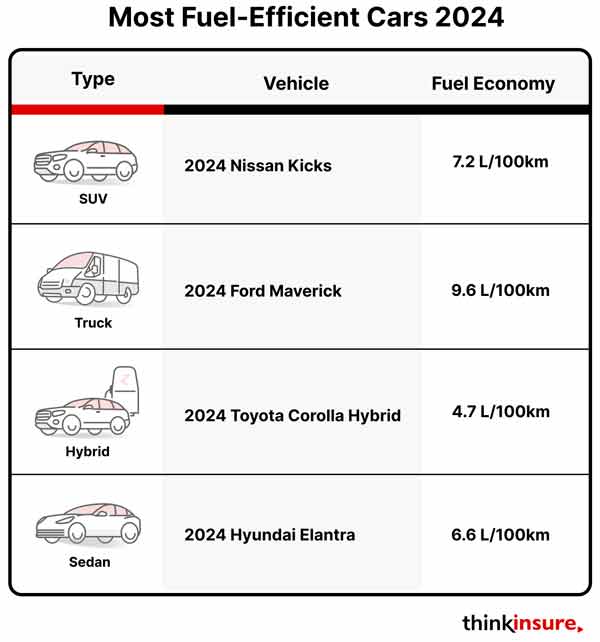Hydra Tech Insights
Stay updated with the latest in technology and gaming.
Fuel Efficiency on a Shoestring: Drive More, Spend Less
Discover smart tips to boost your fuel efficiency and save money on every drive. Drive more for less today!
Top 10 Tips for Maximizing Fuel Efficiency on a Budget
Improving fuel efficiency doesn't have to cost a fortune. Here are the Top 10 Tips for Maximizing Fuel Efficiency on a Budget that can help you save money while keeping your vehicle running smoothly:
- Maintain Your Vehicle: Regular maintenance, such as oil changes and air filter replacements, can significantly enhance your car's fuel efficiency. A well-maintained engine runs better and consumes less fuel.
- Check Tire Pressure: Keeping your tires inflated to the recommended pressure can improve fuel economy by up to 3%. Under-inflated tires create more rolling resistance and decrease your vehicle's efficiency.
- Avoid Excess Weight: Remove unnecessary items from your vehicle. Carrying extra weight reduces fuel efficiency, especially in smaller cars.
- Limit Idling: Turn off your engine when parked for extended periods. Idling consumes fuel and contributes to unnecessary emissions.
- Drive Smoothly: Avoid rapid accelerations and hard braking. Smooth driving can improve fuel efficiency by up to 30%.
Implementing these simple strategies can lead to significant savings at the pump. Additionally, consider these more tips for better fuel economy:
- Use Cruise Control: On the highway, cruise control can help maintain a constant speed, improving fuel efficiency.
- Plan Your Trips: Combine errands into one trip to reduce the number of short drives, which tend to consume more fuel.
- Choose the Right Fuel: Use the recommended octane rating for your vehicle. Using higher octane fuel than needed won’t increase fuel efficiency.
- Drive During Off-Peak Hours: Traffic congestion can lead to wasted fuel. Try to schedule driving when the roads are less busy.
- Consider Carpooling: Sharing rides can reduce your overall fuel costs while also benefiting the environment.

How Driving Habits Can Impact Your Wallet: Fuel-Saving Strategies
It’s no secret that driving habits can significantly impact your wallet, particularly when it comes to fuel consumption. Many drivers are unaware that simple changes to their driving techniques can lead to substantial savings on gas. For instance, adopting a smoother driving style by avoiding sudden accelerations and hard braking can enhance your vehicle's fuel efficiency. Additionally, maintaining a consistent speed and using cruise control on highways can further optimize fuel use. According to studies, aggressive driving can lower your fuel economy by as much as 33% on highways and 5% in the city, which is a considerable amount in the long run.
Incorporating effective fuel-saving strategies can not only help you save money but also contribute to a healthier environment. Here are some practical tips to consider:
- Regular Maintenance: Keep your vehicle well-maintained with regular oil changes and proper tire inflation.
- Lighten Your Load: Remove unnecessary items from your car to reduce weight, improving fuel efficiency.
- Plan Your Journeys: Combine errands into one trip to minimize driving distances.
Is Upgrading Your Vehicle Worth the Cost for Better Gas Mileage?
When considering whether upgrading your vehicle is worth the cost for better gas mileage, it's essential to analyze both short-term and long-term benefits. For many drivers, higher fuel efficiency can lead to significant savings at the pump, especially as fuel prices continue to fluctuate. However, the initial investment in a newer vehicle, or retrofitting an older model with fuel-efficient technologies, can be substantial. Therefore, assessing your driving habits and how often you hit the road can help determine if the potential savings on fuel justify the expense of an upgrade.
Additionally, it's crucial to factor in other benefits that come along with upgrading your vehicle. Newer models often feature advanced technology, improved safety ratings, and increased reliability, which can provide peace of mind and reduce maintenance costs. Moreover, upgrading may also positively impact your vehicle's resale value, further enhancing the return on your investment. Ultimately, evaluating the overall value proposition—taking into consideration the potential fuel savings, enhanced features, and resale opportunities—will help you make an informed decision about whether upgrading your vehicle is truly worth the cost.